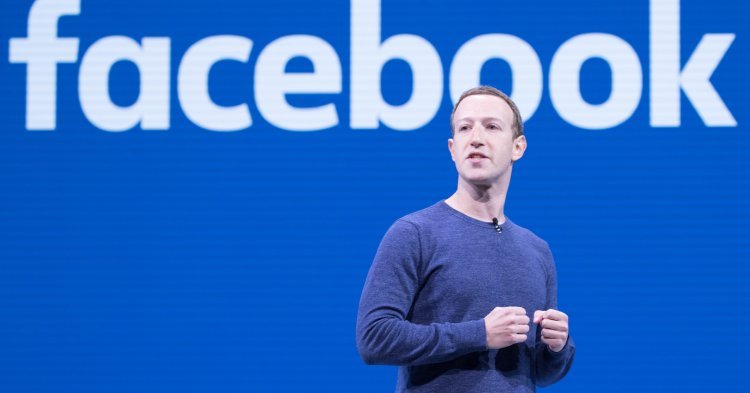In his campaign to be elected as US President in 2008, Barack Obama irreversibly brought the Internet into the world of politics. One of his primary tools for mobilising activists and young supporters was a platform created just four years earlier on the University of Harvard campus: Facebook. The Obama campaign was a victory for grassroots movements, engaging individual citizens in politics in a new way and slightly loosening the party machine’s grip on the campaign.
When Americans were electing Obama’s successor in 2016, social networks once again played a central role in the election. This time, the party machineries were seemingly losing their grip on the type of information shared, as hordes of anonymous accounts flooded the Internet with their messages. Some Facebook ads were created by the official presidential campaigns, but some came from unknown sources.
Same old: Money in politics
The jump into social network-based campaigning has required politicians and party organisations to adapt to a new situation where the Prime Minister and @Dave69 from Sheffield are technically on the same footing. At the same time, any individual working or volunteering for a small organisation knows that mobilising an effective online campaign requires money and skills. In the US, Donald Trump spent more than $20 million on Facebook ads in 2019; this year, Mike Bloomberg topped that by splashing almost $45 million in just a few weeks. Running a state-of-the-art troll army is not cheap fun either: the American Department of Justice asserted that the budget for the high-profile Russian operation to interfere in the 2016 American elections was $1.25 million a month.
New technologies may have arrived, but well-resourced actors like parties, governments and business leaders remain the ones best capable of exploiting them. In this sense, the way to create a more level playing field is the same as before: regulating the amount of ‘money in politics’. The fact that the Vote Leave campaign in the 2016 British EU referendum could be found in breach of campaign finance rules for overspending on its Facebook ads illustrates the potential of regulation, although a ruling made two years after a vote hardly remedies the wrongdoing. To retain a sense of perspective, though, one should remember that the same problem faced election watchdogs even before the era of Facebook. The scandal around the victorious Centre Party’s electoral financing in the 2007 Finnish election only unfolded the following year, when the party was already in office.
But where does the money come from?
The porosity of national borders is what makes social media-based campaigning truly different. Even on social media, it’s well-resourced actors who run the most influential campaigns. But if a foreign power wants to stir up things without getting caught, a social media operation is much easier than putting up billboards on the side of local roads. To protect transparency, Facebook has started requiring political advertisers in various countries to confirm their identity. Twitter has gone even further, deciding to ban all political ads.
News pieces about social media platforms’ decisions demonstrate another novel phenomenon: private corporations have emerged as a key player in regulating political campaigns, alongside state watchdogs. Pressure is mounting on Facebook to fact-check campaign ads and decide which ones should be allowed. Although the debate about standards for advertising is promising, it is based on the problematic premise of relying on (foreign-owned) companies’ goodwill and judgement for how Italian or Greek politicians can campaign.
A solution occasionally presented to the abuse of adverts and of individuals’ personal data is ‘nationalising Facebook’. But if the objective is to stop ‘dark’ or fraudulent ads from targeting citizens of your country, ensuring that content published on social media complies with the relevant legislation on campaign finance and on political speech should be sufficient. Demanding Facebook to, for example, grant public authorities the right to check ads before they can be circulated would already be an incursion into a private company’s operations, but a justified one. You could imagine a billboard company getting into trouble with the law for agreeing to put up banners with illegal content on them.
What role for the EU?
In the EU, many of the relevant rules are national competence: for example, it is the nation states that determine what is hate speech, or what kinds of targeting are allowed for ads. Precedent shows, however, that the EU is better placed to face off with digital giants. The European Commission has been able to give hefty fines to Google for not following the rules, in the knowledge that Google cannot afford to compromise its access to the European market. Even if it is national governments that participate more actively in regulating social media, the EU might provide invaluable negotiating clout in the governments’ efforts to gain expanded access to the platforms.
Though social media has changed the world of political communication and campaigning, many of the fundamentals remain the same. Money buys exposure, which is why citizens should have the right to know who is behind the messages. Someone has to decide what kind of communication is beyond the pale – and ideally, that someone should still be the state. If Europe wants to avoid losing control of how the competition for citizens’ votes and support works, it should take on social media giants as a united front.


Follow the comments: |
|
